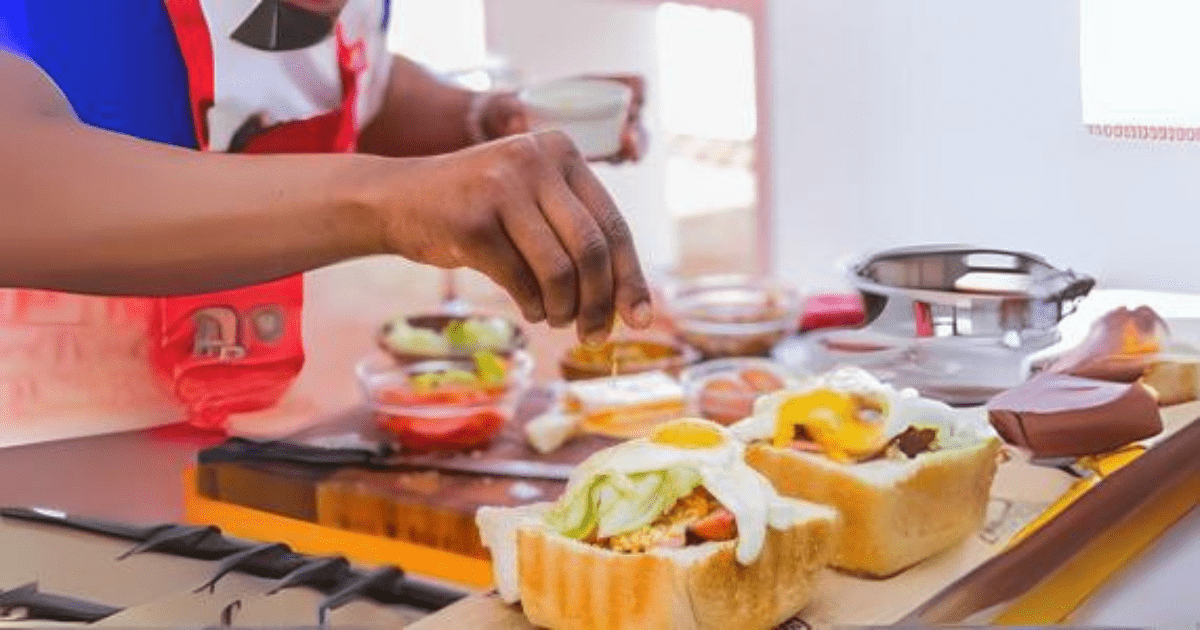
If you want to get into the food service industry and start your own business, then starting a kota business is a great idea. Kota businesses don’t require a lot of money or space to start up. If you have a strong business plan, a great menu, and a good location, you could make a lot of money selling kotas.
In this guide, we’ll cover everything you need to know about starting your kota business, what equipment you will need, and what important considerations you need to make.
Industry Overview
Starting a kota business can be a profitable move if you choose the right location and plan your business properly. There is a strong demand for kotas in townships, CBD areas, shopping areas, and just about anywhere else where there are a lot of people looking for an affordable meal.
Out of all the unique business ideas that exist in South Africa, starting a kota business is one of the best. The startup costs are low, you don’t need much space, and just about anyone can do it.
Getting Started
Unlike starting a shisanyama business or starting a bakery, starting a kota business does not require a lot of space or capital. You can run a kota business out of your home kitchen, out of a container, shack, or brick and mortar building.
You need a few basic pieces of equipment to start. This includes a fryer to make the chips, a frying pan and stovetop for eggs and polony, and a fridge to store the ingredients. These are the basics, but you might also need a few more pots and pieces of kitchen equipment, depending on your menu.
The most important part of starting such a business is finding the right location. The business needs to be based somewhere where there is plenty of foot traffic and, ideally, not too much competition.
You will also need to find reliable suppliers for your kota kitchen. If you purchase ingredients from supermarkets, it will lower your profits. Try to find wholesalers to buy bulk ingredients from. This also includes the packaging you need to wrap your kotas up in.
When starting a kota business, you will also need to figure out how you’re going to market your business to attract customers. This starts with a sign for your business and could include social media marketing, handing out flyers, running promotions, and more.
In order for your business to be successful, it’s important to have a clear business plan. Your business plan must include things like your menu, how much it costs to make each kota, how much you will sell them for, how many you need to sell to be profitable, how you will scale up your operations, and so on.
Industry Challenges in a Kota Business
Starting a business can be a great way to make money, but it doesn’t come without its challenges. Kotas are affordable meals, so you do not make huge profits selling a single kota. This means you will probably need to sell a high volume of kotas to meet your targets.
The industry is also very competitive. If you’re not competing directly with another kota business, you will be competing with fast food restaurants, supermarkets, and any other takeaways in your area.
Laws and Regulations
To start any food business in South Africa, you will need to have a business license, as well as a certificate of acceptability. These licenses are to ensure your kota business meets all the relevant health and safety standards. You can apply for these licenses through your local municipality.
Must-Have Tech Tools for Starting a Kota Business
Beyond your kitchen equipment, there are a few extra tools you might need for running a successful business. This includes a till, a point of sale (POS) system, and a card machine. You can get apps that run on your smartphone that act as your POS and connect to your card machine. You might also want accounting software to manage your finances effectively.
Just like starting a sneaker cleaning business, selling kotas is easy to get into. If you do it right, it can be very profitable. You just need to make sure to plan out your business well, choose a busy location, and produce high-quality food. Starting a small kota kitchen out of a container could turn into a big fast-food empire. These businesses are easy to scale, and there’s always a strong demand for them.








